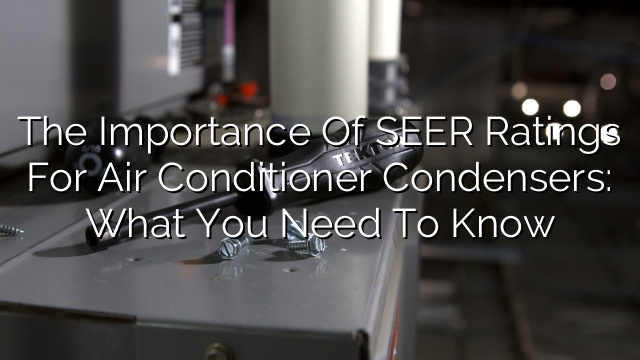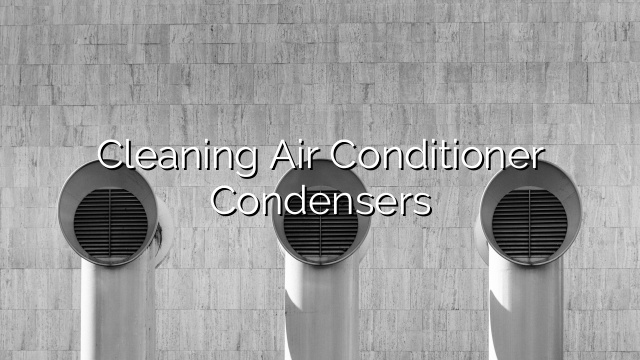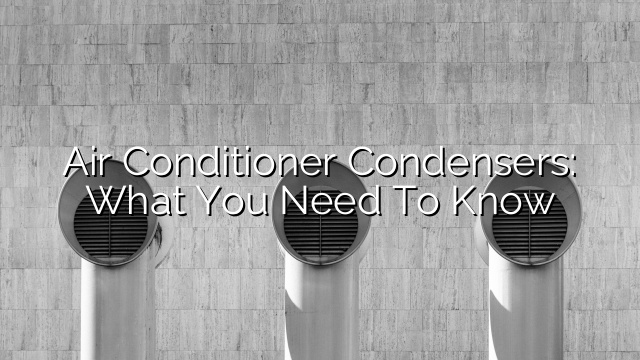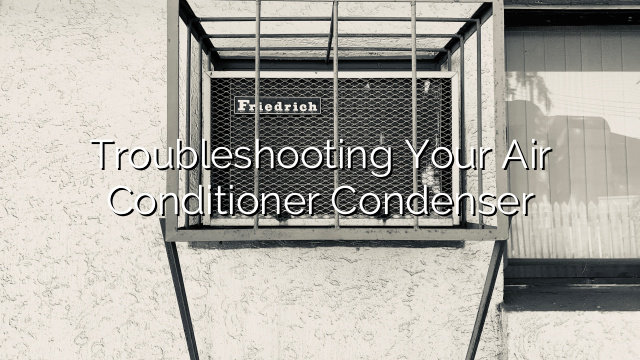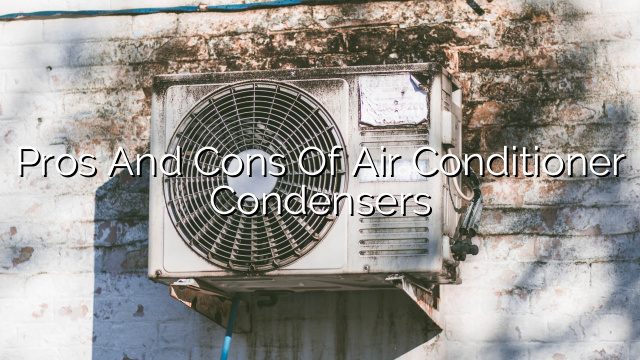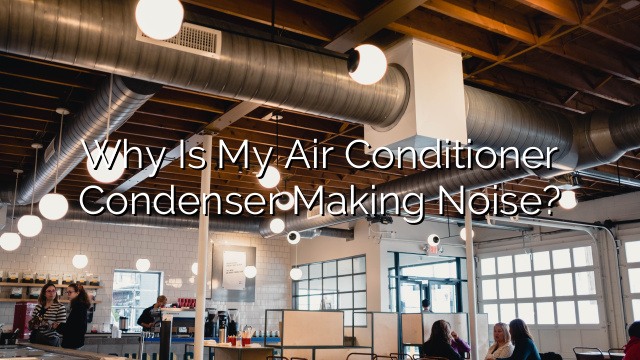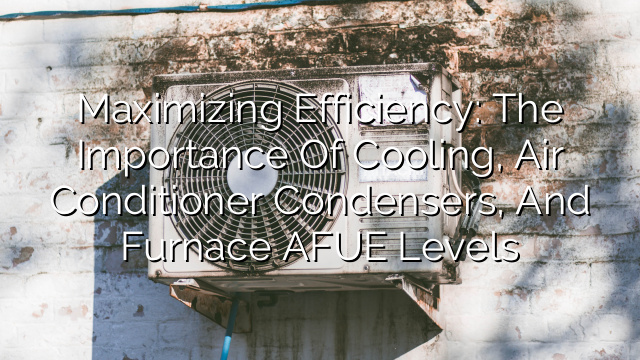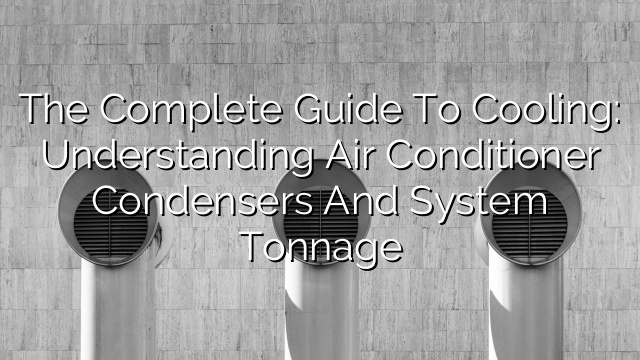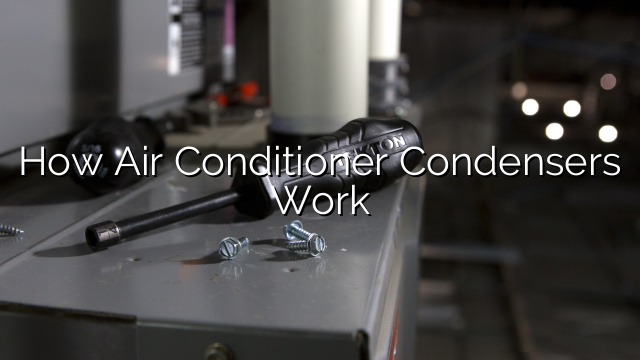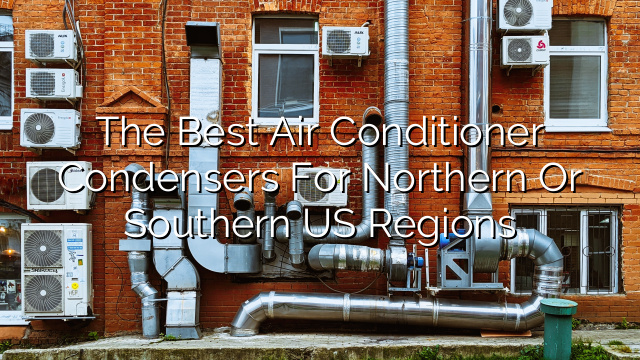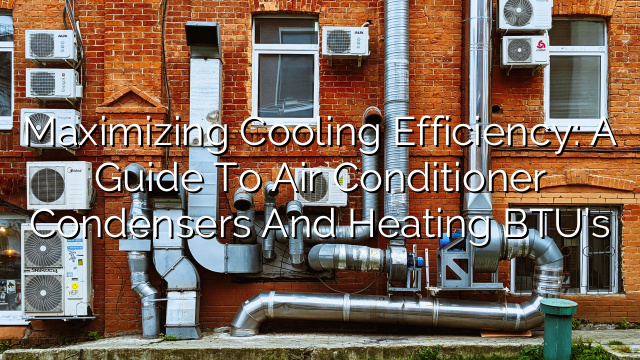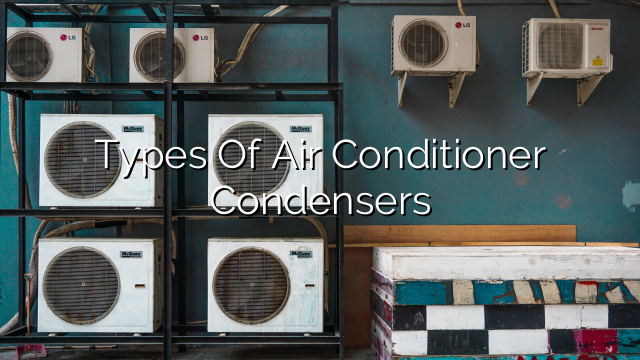The Importance of SEER Ratings for Air Conditioner Condensers: What You Need to Know
When it comes to choosing an air conditioner condenser for your home, there are several important factors to consider. One of the most crucial is the SEER rating. SEER stands for Seasonal Energy Efficiency Ratio and is a measure of how efficiently an air conditioner operates. The higher the SEER rating, the more energy efficient the system.
But why is the SEER rating so important? And what does it mean for your cooling system? In this blog post, we will explore the significance of SEER ratings for air conditioner condensers and why you should pay attention to this important factor when making your decision.
1. Energy Efficiency and Cost Savings
SEER ratings play a significant role in determining the energy efficiency of an air conditioner condenser. The higher the SEER rating, the more energy efficient the system is. This means that a condenser with a higher SEER rating will use less energy to cool your home, resulting in lower utility bills and long-term cost savings.
For example, an air conditioner condenser with a SEER rating of 16 is considered to be highly efficient, while a condenser with a SEER rating of 13 is less efficient. By choosing a system with a higher SEER rating, you can save a significant amount of money on your energy bills over time.
It’s also important to note that energy-efficient air conditioner condensers are better for the environment. By reducing energy consumption, you are reducing your carbon footprint and contributing to a more sustainable future.
2. Comfort and Performance
SEER ratings not only affect your energy bills but also impact the comfort and performance of your air conditioner condenser. Systems with higher SEER ratings tend to provide superior cooling performance and better humidity control, resulting in a more comfortable indoor environment.
When you invest in a higher SEER-rated condenser, you can expect more precision temperature control, consistent airflow, and reduced noise levels. These factors contribute to an enhanced home comfort experience, particularly during hot summer months.
3. Comparable Comparison
Another reason why SEER ratings are crucial when selecting an air conditioner condenser is because they allow for easy comparison between different models and brands. SEER ratings provide a standardized measure of the efficiency and performance of condensers, making it easier for consumers to make informed choices.
When comparing air conditioner condensers, pay close attention to the SEER ratings as well as the cooling capacity and other features. This will ensure that you select the most suitable condenser for your specific needs and preferences.
FAQs about SEER Ratings for Air Conditioner Condensers
- 1. What is the minimum SEER rating for air conditioner condensers?
- In the United States, the minimum SEER rating required for air conditioner condensers is 13. However, it is recommended to choose a condenser with a SEER rating of at least 14 for optimal energy efficiency.
- 2. Do higher SEER-rated condensers always provide better performance?
- While higher SEER-rated condensers generally offer better performance and energy efficiency, it is essential to consider other factors such as the size of your home and your specific cooling needs. Consulting with a reputable HVAC professional can help you determine the most suitable condenser for your requirements.
- 3. Can I upgrade my existing condenser to a higher SEER-rated model?
- Yes, it is possible to upgrade an existing condenser to a higher SEER-rated model. However, it is important to consult with an HVAC professional to ensure compatibility and proper installation.
- 4. Are there any government incentives or tax credits available for high SEER-rated condensers?
- Depending on your location, there may be government incentives and tax credits available for high SEER-rated condensers. It is advisable to research local programs and consult with a tax professional to determine if any incentives apply to your situation.
- 5. How often should I replace my air conditioner condenser?
- The lifespan of an air conditioner condenser can vary depending on usage, maintenance, and environmental factors. On average, a well-maintained condenser can last between 10 to 15 years. However, as technology advances and energy efficiency standards evolve, you may consider upgrading to a higher SEER-rated condenser sooner to take advantage of potential energy savings.
In conclusion, SEER ratings are a crucial consideration when selecting an air conditioner condenser. They determine the energy efficiency, performance, and cost savings of the system. By choosing a condenser with a higher SEER rating, you can enjoy increased comfort, lower utility bills, and a reduced environmental impact. Take the time to research and compare SEER ratings when making your decision, and consult with an HVAC professional for expert advice and guidance.

